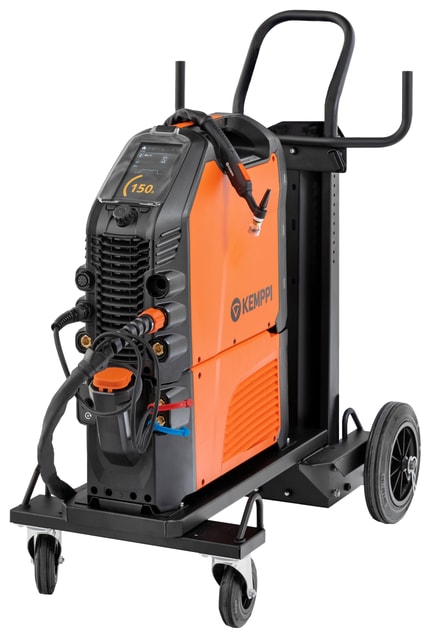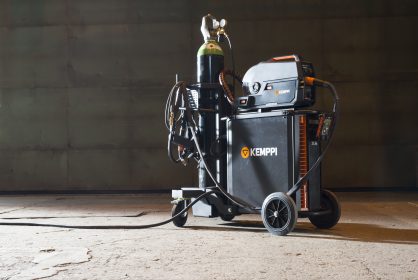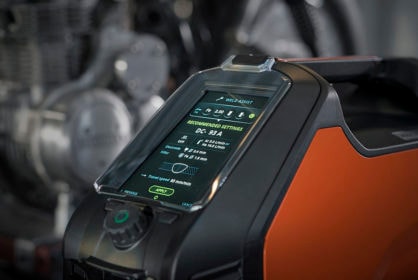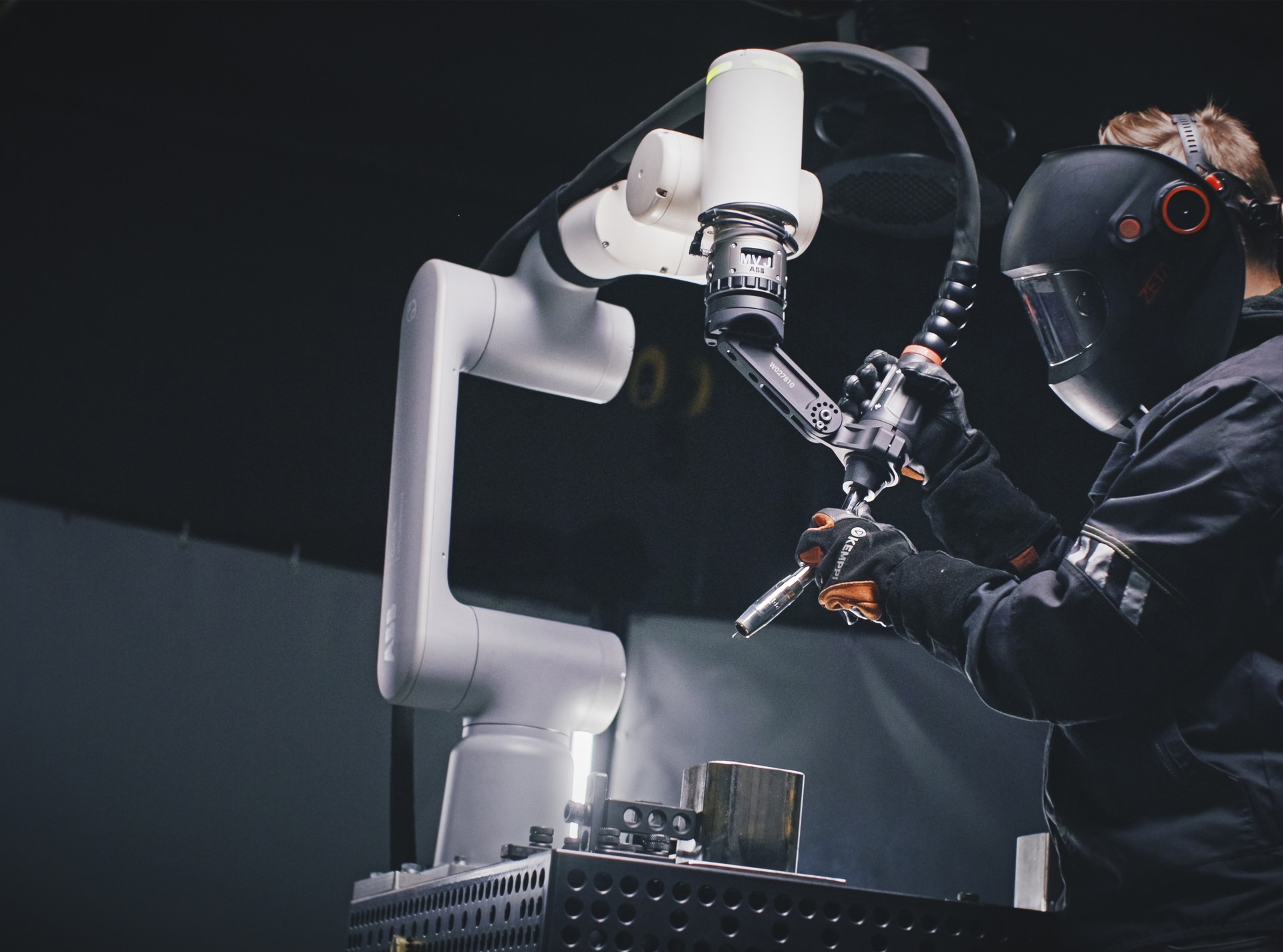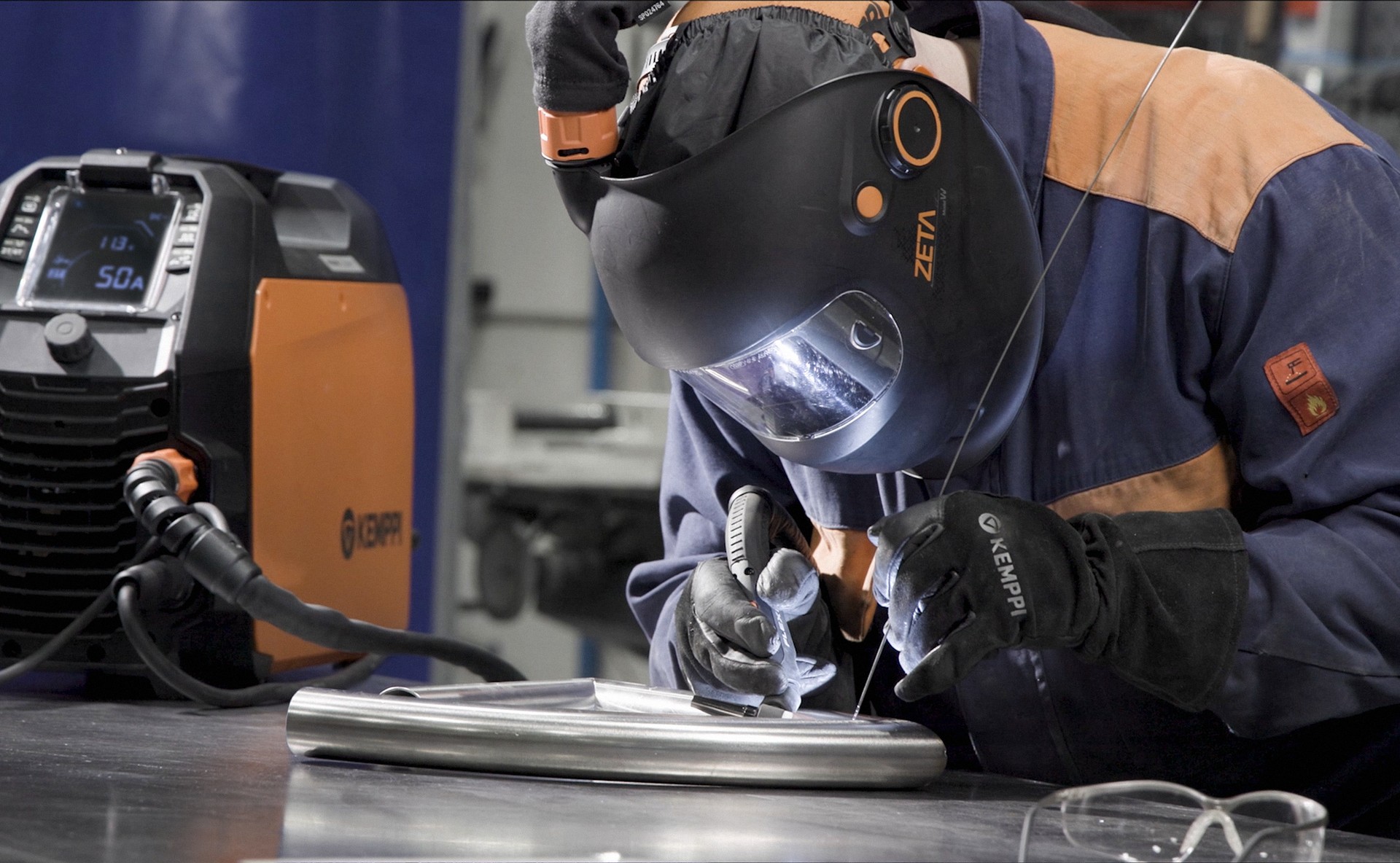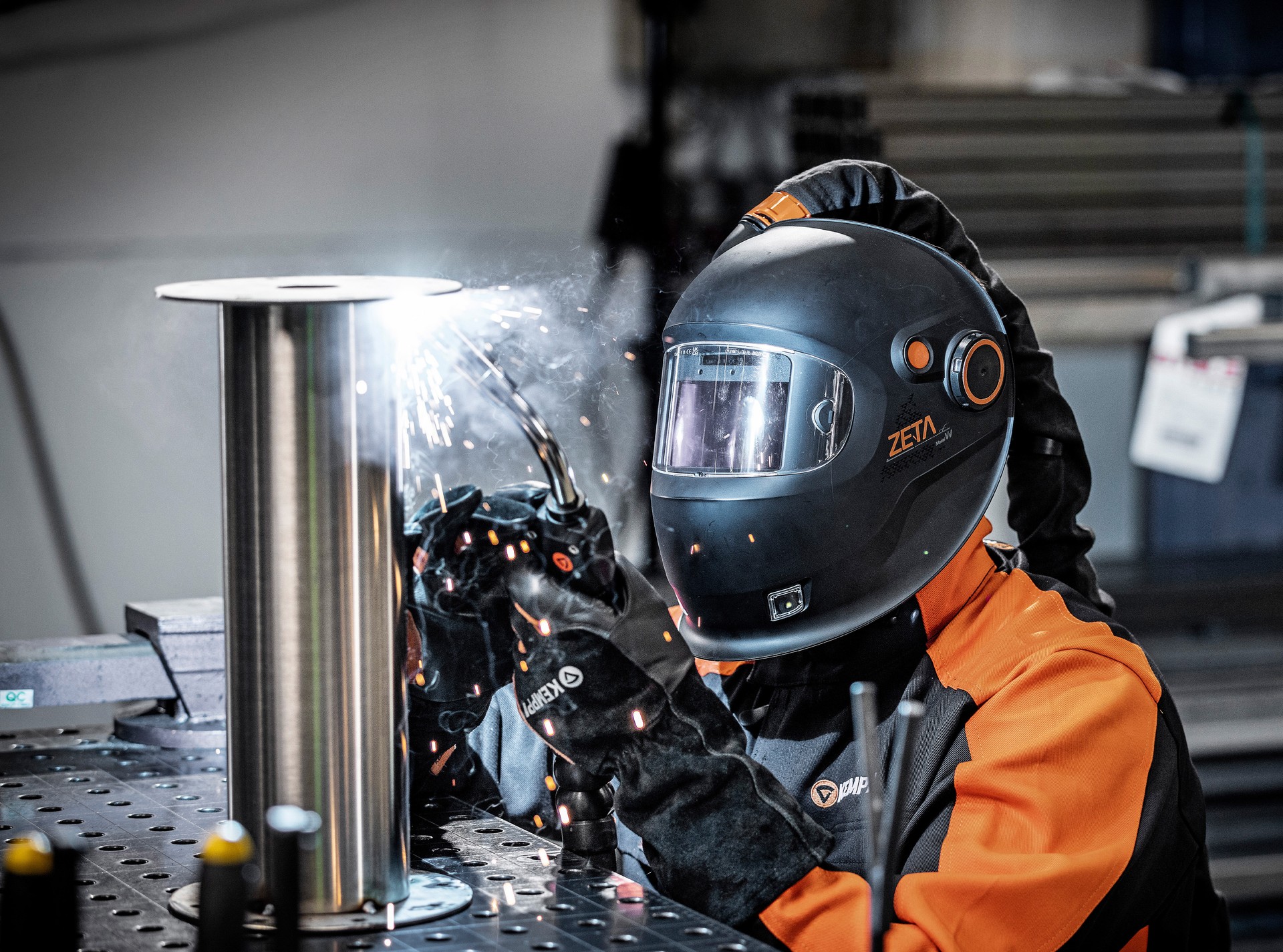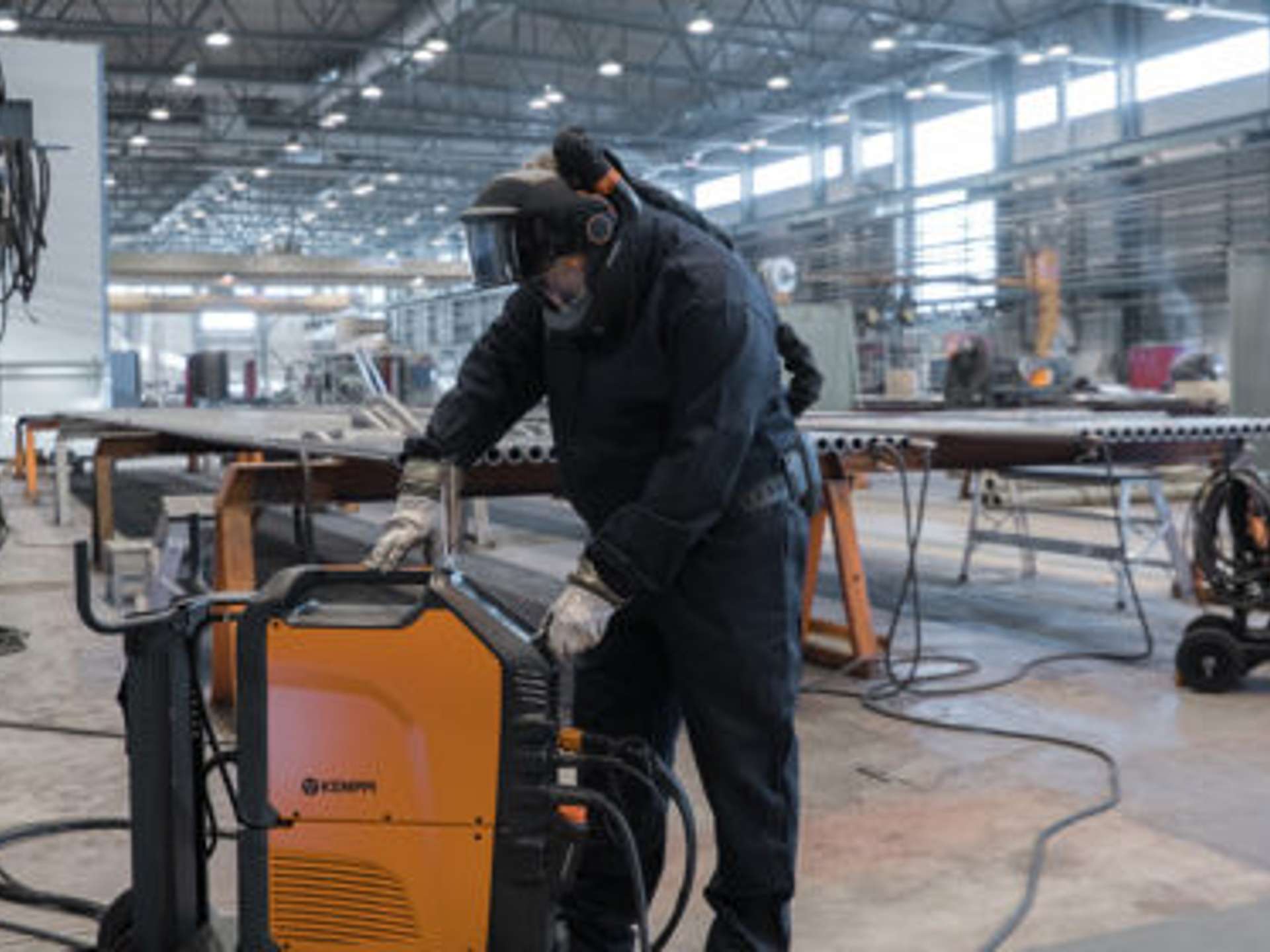
Innovation
The secret of a good user experience
26 August 2020
What are the factors behind a good user experience? The recipe for the world’s best welding experiences has been developed in Kemppi R&D for over 70 years. Jussi Kapanen, Kemppi’s User Experience Manager, now reveals the ingredients.
Jussi Kapanen
What is a user experience?
A user experience, UX, is produced by human brains. It is different for each user. All your memories and lessons learned in life affect how you feel about a new product.
The experience is affected by each user’s needs and expectations. A photographer used to cameras of a certain brand might feel that the competitor’s top model is clumsy. The expectations might also have reverse effects: the less you expect, the more positively you could be surprised. Thus, it is important that marketing communication is honest, describing the product just as it is.
User experience is different from usability:
Usability is the quality of interaction between the product and the user. It can be measured objectively, for example by the speed and error rate in specified use cases.
User experience is a subjective state of mind. It is found out by asking users how they feel about the product.
What is a good user experience made of?
Over 2000 years ago, Vitruvius studied Roman architecture. In his book De Architectura, Vitruvius defined that good buildings must show firmitas, utilitas and venustas: durability, usefulness and beauty. 20 years ago, researcher Matthews analyzed the qualities of computer user interfaces, UIs. He defined that human-computer interfaces should be robust, useful and pleasurable.
The qualities of good products are timeless and independent of industries. For a good UX, the user requires:
Right features
Ease of use
Effectiveness to achieve user’s goals
Reliability
Pleasurable user experience
What the user wants may differ from what the user needs. When buying a product, more features may sound better, but when using the product, every excessive feature makes the product more complicated. Good product design means eliminating the unnecessary. As Jussi Kapanen expresses it: “Design is perfect when there is nothing more to take away.”
When the product is easy to use, the user understands at first sight how to use it – without a user manual. The new features must be introduced in a way that they feel familiar from the get-go.
User experience is a team effort
The UX sums up everything experienced by the user: the physical product, the interaction with the device, the welding quality, and the user documentation. Building this experience is teamwork. Welding experts, interaction designers, graphic designers, industrial designers, software designers, writers, mechanical designers, circuit board designers and many more talents join together to fulfill the users’ needs from every viewpoint.
When a product is well designed, the users can focus on what they need to do; not on how to use the device. A common language helps to understand the features. Kemppi user interfaces, UIs, are localized in 15 different languages. Kemppi has also a clear symbol language: its grammar and vocabulary stay the same from decade to decade.
The strongest driver of UI design is consistency. When you have used one Kemppi product, you know how to use the others. As an example, all the selections and adjustments are done in the same way in Kemppi’s digital UIs: turn the knob and press.
Familiarity is important even in details that the user does not think about. The colors, typography, and layouts of Kemppi's digital user interfaces always follow the same rules. For example, blue colors are related to navigation in the UI. The orange color is only displayed in the adjustment mode, and only the things to adjust are orange. The user does not have to be aware of these rules - the big picture just feels natural.
In professional tools, it is not enough that all features are easy to find. They also need to be fast to access. Often these two goals support each other. Sometimes parallel solutions are called for: besides a simple and adaptive UI, the heavy users also need an alternative, even faster way to use the device.
Test users in a key role
The relationship between the user and the device is based on trust. The product must be technically reliable. In addition, the user must trust that the device understands the settings in the same way that the user meant.
Technical reliability is ensured with tough tests: extreme freezing and heating, dropping and hitting with hammers, water and electric shocks. Reliable interaction with users is ensured with long piloting tests. Before the public launch of a product, its test versions have been used in real production of our pilot customers for several months. Based on test users’ feedback, every new welding machine is finetuned to be an enjoyably well-designed tool for real work.
Designing a good welding machine requires understanding both technology and human thinking. A good tool is a seamless extension of the hand and the mind.

Jussi Kapanen
Jussi Kapanen
User Experience Manager at Kemppi Oy. Combining customers’ business needs with the desire to make users‘ life easier. Over 25 years of UI design, usability evaluations and user experience research, developing world-class products in different B2B and B2C industries. Passionate about fulfilling user needs with simpler and simpler solutions. “Design is perfect when there is nothing more to take away.”
